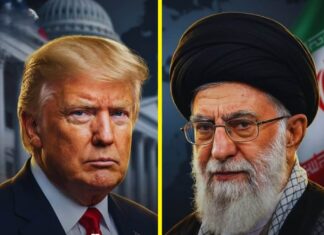By Bhavya
The World Economic Forum (WEF) held at Davos for this year, an annual event that means well and brings together leaders and entrepreneurs and invites their discourse on matters related to economy, focussing on all the various entities this sphere of economy encompasses – education, healthcare, household/consumer sector, industries, investment, international relations and so on. On a very frank note, it is also the place these leaders and entrepreneurs look forward to go to, because of the assured presence of affluent members among the audiences and speakers’ panel and international media coverage and it undoubtedly is a brilliant platform for many. There have been cases that we should look at where leaders of different countries have used this platform to garner support, lobby and in very frank terms, ‘advertise’ for their country, one of them being the Mr Rouhani’s Iran, this year.
Iran is one country which has had an exciting, unsettling recent past, 1979 Revolution and change in the style, type and composition of government being a landmark in this series of events. U.S. Sanctions against Iran have been a major consequence of these events, given the fact that Iran has, in simpler terms, not been in the good books of the U.S., and that’s not simply because of the hostage crisis of ’79. The theocratic republic’s policies posed threat to the interests of the US in the Middle East.
Iraqi invasion of Iran in the 1980s was followed by the United States withdrawing its assistance from and terminating all trade relations between the two.
A series of sanctions passed in 1995 targeted major industries in the Iranian economy, added to the sanctions against financial sector of the country. Effects have been crippling, of course. Sanctions made sure Iran remains technologically stunted, that’s partly because they want to let the momentum of the major provisions sink in.
Comparing the growth rates during Shah’s regime and the various aspects of its economy with that of the current government reveals the difference. Iran lost a lot due to these sanctions – of course, even the countries which don’t buy from it lost too – US could have saved around 76 billion USD itself had it been trading with Iran. The Iran Sanctions Act (ISA) is the act that goes beyond just US and Iran- US sanctions all those companies which invest more than 20 billion USD in Iranian oil sector.
US also tried to convince nations not to buy oil from Iran – a list of 12 – 13 of these countries which do buy Iranian crude, including India. Though it has been reduced, there has been a talk to renew those again.
However, things started to change when Mr Rouhani came to power. 2013 saw him break the ice between the West and Iran, and the much talked-about deal between the Permanent Five and Iran, facilitated by the EU, was quite a success in its own right. Iran agreed to temporarily lower the rate of its enrichment programme and the West agreed to relax sanctions on gold and petrochemical exports which can potentially provide Iran with revenues running into at least USD 1.5 billion.
Evidently, this is not enough. At Davos ’14, Mr Rouhani strongly stood by his stance – of correcting the state of Iranian economy, through the pursuit of a consistent foreign policy of “prudence and moderation”. The Iranian presentation was impressive and the very presence indicated serious intentions of improving relations with foreign institutions. Added, he was clear that he wants the sanctions removed because clearly the effects are crippling.
However, the problem is, while oil companies would like to invest in Iran, many wouldn’t want to do so until it the sanctions are still present and effectively functioning, despite the relaxation.
Iranian economy currently faces troubles that are not just sanction-related, though they do play a huge role. Iran bears high development potential. SO, very firstly, if Iran needs foreign investment, it’s because the public sector is not very efficient. That is partly due to backward technology. Foreign influence will mean better, more efficient technological apparatus and so on. As mentioned earlier, sanctions have made sure that Iranian technology remains stunted because otherwise, there would be no point of embargo on industries, since it would be then effectively compensated by the more efficient, sufficient units, whether run by the government or not.
Secondly, the rate of inflation in Iran is a great disadvantage. This has been happening, as Bijan Khajehpour points out, due to subsidy reforms and currency devaluation. Prices of energy, and key industrial products, like cars, have been rising, almost doubled.
“The Iranian Central Bank acknowledged an inflation rate of 45% rate in late July 2013. Many economists assert that these official figures understate the actual inflation rate substantially, and that it is between 50% and 70%.”
(SOURCE : Federation of American Scientists)
Thirdly, the issue of currency devaluation is somewhat intertwined with the problem of inflation. This is greatly due to sanctions on the Iranian financial sector by the US. Added, Iranian Central Bank has been cut off from the international financial system, basically to disallow Iran from transacting in hard currency, and it compels Iran to seek payment in the form of products from the oil customer countries. The consequences are evident – it restricts the flow of transactions, and not always a country is clear about what it needs from the country it owes. The exchange rate, unofficial, in 2013 was about 37000 IRR to 1 USD, but it appreciated to 30,000 IRR by Rouhani’s accession, and now, since the interim deal came into effect, it is around 28000 IRR to 1 USD.
Fourthly, the GDP has been contracting for past few years, despite Iranian insistence that it has been otherwise. There are industries not performing, hence shutting down, and apparently, even the public sector enterprises aren’t functioning efficiently. The potential is huge, and 2014 holds promise for the Iranian economy.
U.S. officials testified on May 15, 2013, that GDP would drop about 5% in 2013. As a consequence, the unemployment rate has risen to about 20%, although the Iranian government reports that the rate is 13%… The sanctions relief of the interim nuclear deal … could cause Iran’s economy to improve in 2014, but there are no firm estimates on the extent of any such likely improvement once the nuclear deal begins implementation on January 20, 2014.
(SOURCE: Federation of American Scientists)
At the WEF, many oil executives attended the talk by Mr Rouhani, and received a clear, positive message. However, many were, as mentioned earlier, doubtful if they’d like to invest in Iran just as yet, primarily because of the ISA provision of getting themselves potentially sanctioned against by the US.
In any case, while the whole interim deal raises hopes and expectations, it is very unlikely for the US to remove sanctions against Iran. There are countries that trade with Iran but then, a larger market remains cut off and keeps Iran distanced from the higher growth and development potential.
Again, it all comes down to the nuclear weapon issue between Iran and the West. Iran is very clear about how it will not let anything impede the scientific research progresses concerning tapping nuclear energies, and has agreed to the obligations of accepting the nuclear-programme related obligations and duties, this acceptance being a result of the desperate state Iranian economy is in.
I personally feel that while Mr Rouhani is definitely trying to break the ice, the West might choose to resist those advances. It looks like the West cannot choose to let Iran live up to its potential, because of its affiliations which disturb their interests in the Middle East. Mr Rouhani, during his talk, indirectly made clear that Iran will not let Israel and Saudi Arabia interfere in Iranian progresses towards better relations with the West and the related benefits of course.
All this kept in mind; it’s very natural for those opposing Iran to have their doubts, of how Iran might not stand its end of the deal after it’s in a position to afford disregarding the impositions of the West.
So, while not dismissing Iran’s endeavours as vain, what one could do is see what this interim deal yields, because even if things go beyond this milestone on that same path, it’s bound to take a lot of time, since it’s not easy to dismantle misunderstandings and its material and immaterial consequences that have been in place for more than three good decades.



































